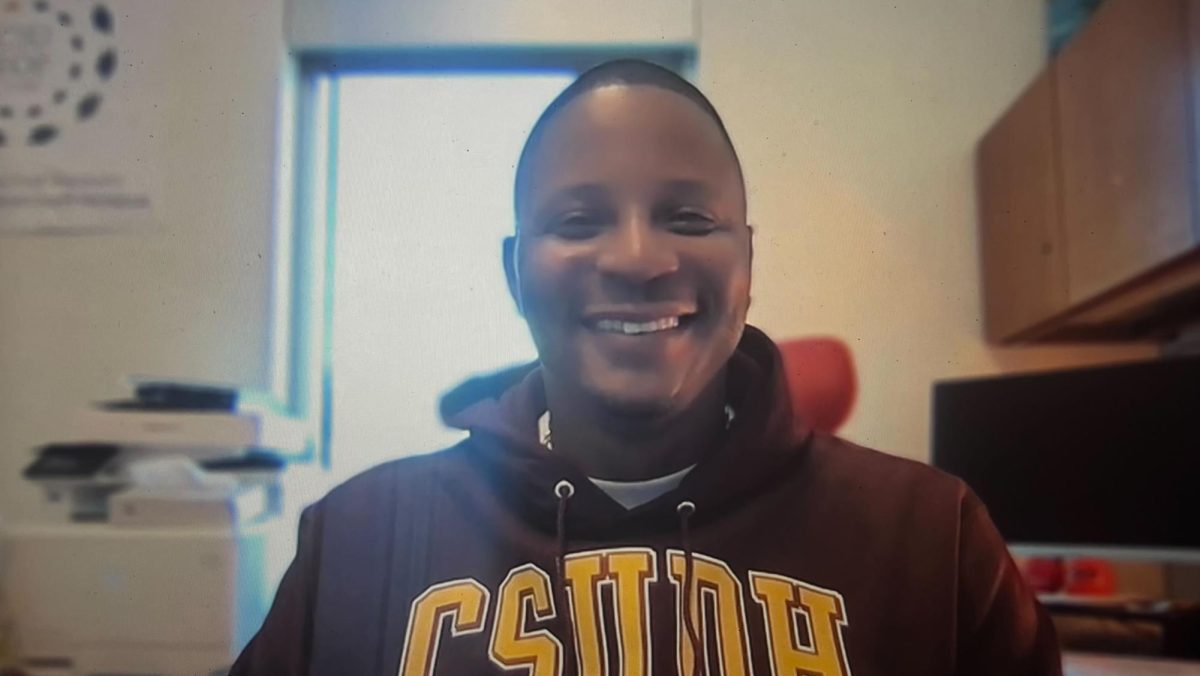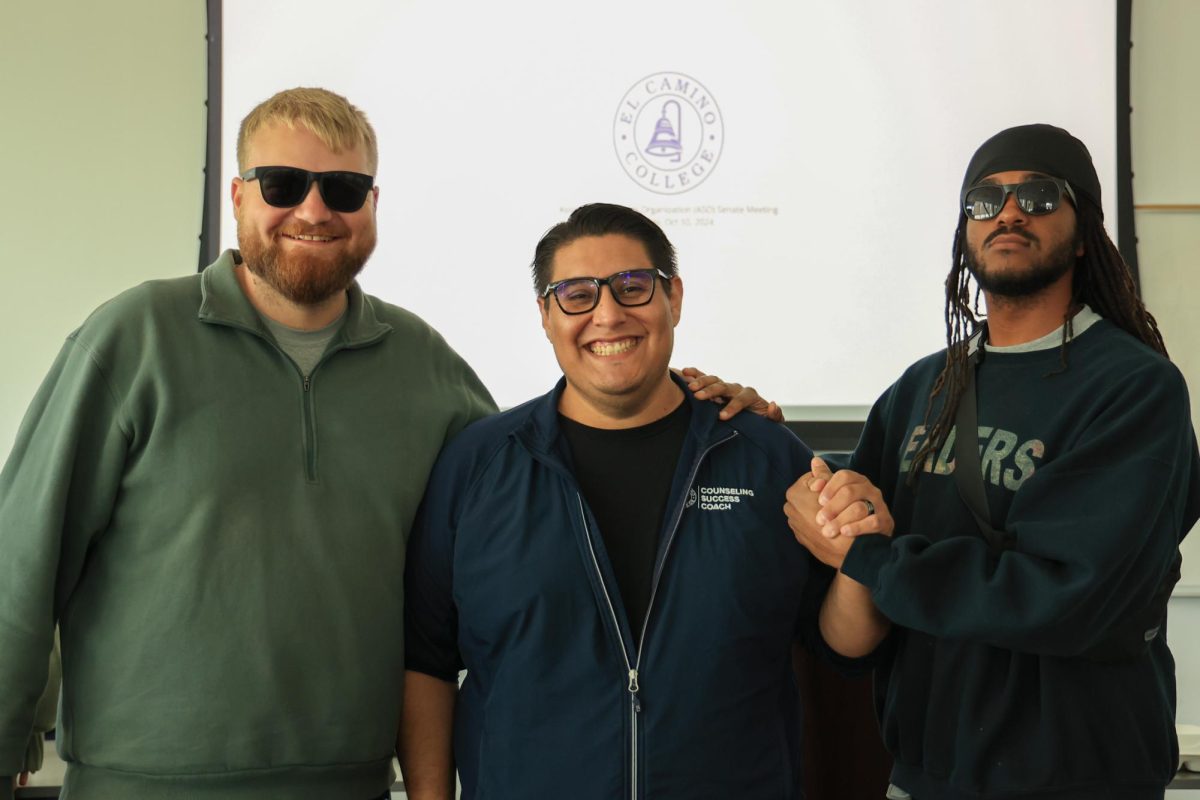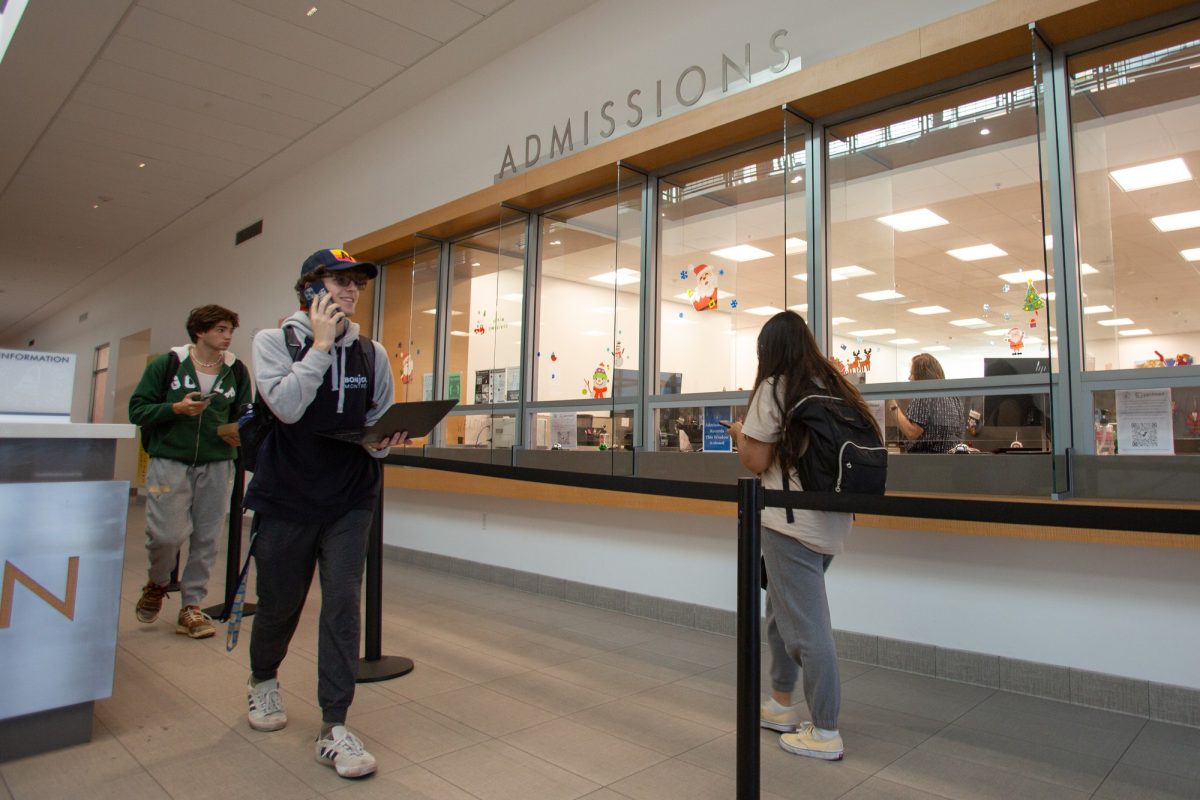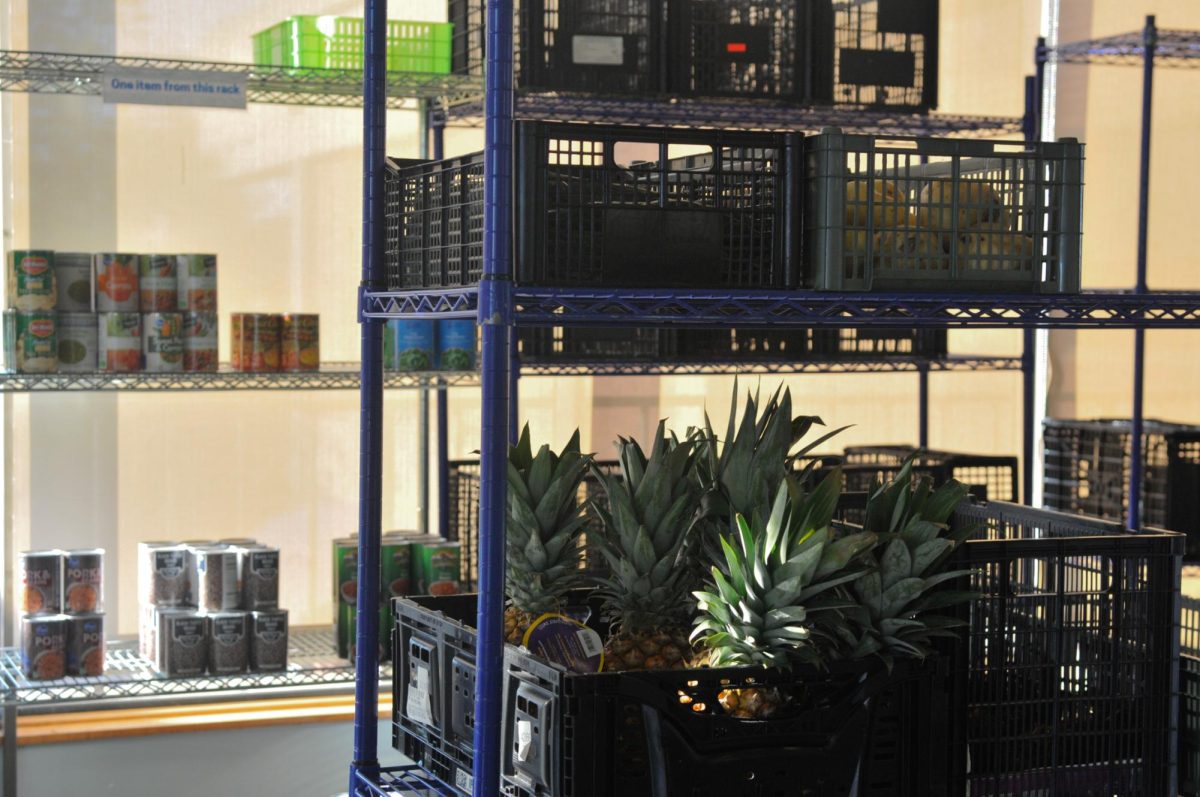Almost 140 students and teachers crowded into a lecture hall in the Math and Computer Sciences Building on Tuesday to attend a presentation on global climate change by Joseph Holliday, earth sciences professor.
Associated Students Organization’s, Sustainability Committee sponsored the hour-long speech as part of its “Earth Week” initiative in the hopes of inspiring students to reduce their environmental footprint.
“The Sustainability Committee has done an amazing job so far, my hat’s off to them, not literally, but figuratively of course,” Holliday said.
Holliday’s speech covered a wide range of topics regarding global climate change, with an emphasis upon less well known consequences of such wide ranging climate change
“One of the biggest killers in the world is malaria and global climate change will allow malaria carrying mosquitos to spread to places they never could have survived before,” Holliday said.
Another point Holliday’s speech covered was the release of carbon dioxide into the ocean, causing increased carbonic acid levels, a topic Holliday said he felt was often ignored by today’s media.
“I think I’ve only seen one article mentioning it in the last few years, because the press usually thinks it will go over people’s heads, but it’s actually quite simple” Holliday said.
When carbon dioxide is released into the ocean in such high levels, it increases the amounts of carbonic acid, eating away at the calcium that forms the shells of most sea life, from clams to the coral reefs, Holliday said.
The speech was generally well received by the audience, although a common complaint was that Holliday should have been given the opportunity to speak longer.
“I thought it was pretty intriguing, it’s really something that everyone should learn about, I just wish we’d had time for questions at the end,” Andrew Zabala, geology major, said.
However, other members of the audience were less impressed by Holliday’s speech, such as Steve Pedersen, a non-student who had been drawn to attend the event on campus by a poster in the Planetarium.
“I think a lot of it was exaggerated, I mean, global climate change is real, but I don’t think it’s nearly as bad as they’ve tried to make it out to be,” Pedersen said.
Of course, many of the students in attendance came for the extra credit being offered for geography, oceanography and marine biology classes.
“I came for the extra credit in my oceanography course, but I thought the whole presentation was really informative and easy to understand,” Sheila Hudson Masters, English major, said.








